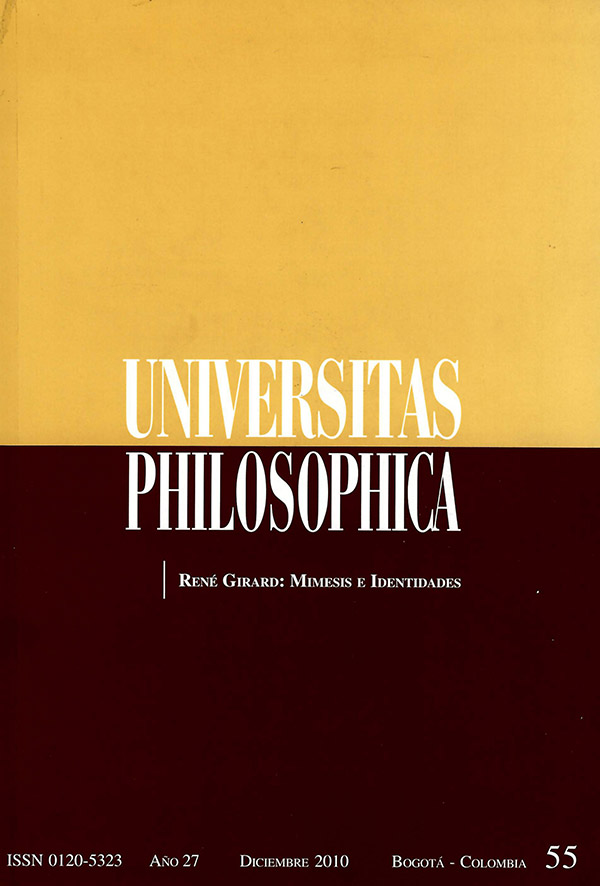Abstract
This article explores a three plateaus interpretation of Girard's thesis that sacrifice is at the root of all societies, expressed in his Violence and the Sacred. The first one highlights the contradiction inherent in the social nature of mankind, because it has to build a civilization and a ritual to give effect to such violence in a socially accepted way and keeping it in some way hidden in its crudest form. The second emphasizes the ritual instance as a violent competition mechanism that silences original violence throughout the ritual inherent to economic and political institutions such as the current capitalism. The third, examines how, as capitalism established its ritual sacrifice in the economic struggle for job success, communism sought an external enemy –another scapegoat–which would unify socialist republics against it. In both, as in every society, the exercise of sacred violence is performed by an authorized representative with a preventive and punitive intention. The problem appears when sacred violence does not break the cycle of violence but restarts it, thus giving rise to a recurrent sacrificial crisis leading society to its self-destruction.
This journal is registered under a Creative Commons Attribution 4.0 International Public License. Thus, this work may be reproduced, distributed, and publicly shared in digital format, as long as the names of the authors and Pontificia Universidad Javeriana are acknowledged. Others are allowed to quote, adapt, transform, auto-archive, republish, and create based on this material, for any purpose (even commercial ones), provided the authorship is duly acknowledged, a link to the original work is provided, and it is specified if changes have been made. Pontificia Universidad Javeriana does not hold the rights of published works and the authors are solely responsible for the contents of their works; they keep the moral, intellectual, privacy, and publicity rights.
Approving the intervention of the work (review, copy-editing, translation, layout) and the following outreach, are granted through an use license and not through an assignment of rights. This means the journal and Pontificia Universidad Javeriana cannot be held responsible for any ethical malpractice by the authors. As a consequence of the protection granted by the use license, the journal is not required to publish recantations or modify information already published, unless the errata stems from the editorial management process. Publishing contents in this journal does not generate royalties for contributors.


